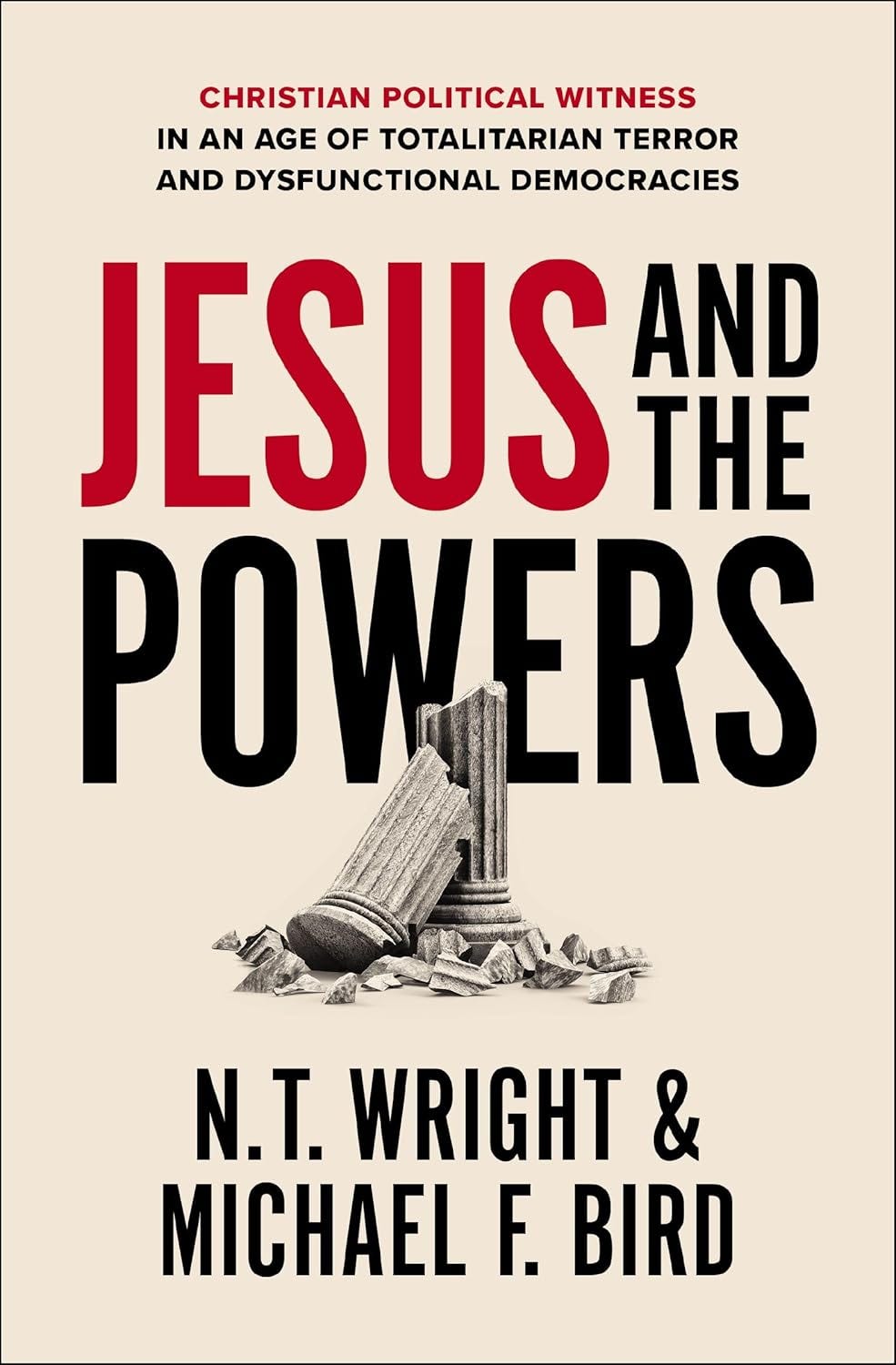The ill-boding popularity of Halloween
Plus: gentle parenting, Republican dissidents, and more
Good morning! It’s Wednesday, and here’s this week’s post.
A take I haven’t written elsewhere
The ill-boding popularity of Halloween

Eight days out from Halloween and 13 from Election Day, it’s impossible not to notice the confluence of decorations in my neighborhood. There are orange and purple string lights, inflatable zombies, ghouls and witches and skeletons of every size. And there are Trump-Vance signs, Harris-Walz signs,1 signs for state and local officials, homemade signs, custom-order signs, flags and banners to boot.
Now, I should begin by acknowledging—as I wrote last year and will briefly recapitulate here—that I think modern American Halloween is gross and bad.
And it may come as no surprise that I would characterize this presidential election—at least where the viable, major-party candidates are concerned—pretty much the same way. If I may reprise a theme from The Week in 2020, I don’t want Kamala Harris to win. I do want Donald Trump to lose.
I mention all that up front to say I am far from unbiased here, and I recognize that I may be making a classic commentator’s mistake: picking two things I dislike and wrongly linking or conflating them.
But bear with me, because I think looking at how we do Halloween with politics in mind casts a revealing light on America in 2024. It strikes me that Halloween’s rapid two-decade rise in the secular holiday ranks speaks to where we are as a society.
Let’s start, though, with the positives: Parties are good. Walking around your neighborhood talking to people is good. If Halloween were just parties and neighborhood hangs, I’d be for it. But it is not just those things, and the likelihood that many of us need Halloween as a reason to get together or meet the neighbors is a bit grim. Crisis of loneliness, Bowling Alone, all that sort of thing, none of it conducive to a friendly and functional politics.
Then there are the negatives. I won’t rehearse them all—let me direct you again to last year’s post, which is frankly a banger—but the short version is that this is a garbage holiday that offends equally against good taste and a morally serious contemplation of evil, death, and decay. “The last enemy to be destroyed is death,” and modern American Halloween is a tacky flirtation across enemy lines.
That’s particularly true of its adult variations, which are worse than kids collecting chocolate-flavored wax from the neighbors. There are exceptions, but adult Halloween comes in two primary varieties: sleazy and corporate. Sexy [witch, cat, Trump, termite, whatever] or a party literally thrown by HR.2
After all, modern American Halloween is an ideal corporate holiday: Though it has religious roots, they’re long since severed in the average American’s imagination. This probably comes of transplanting an originally Catholic holiday to a predominantly Protestant context; we kept the revelry and dropped the saints and alms. But whatever the explanation, basically no one gets an evite with cartoon spiders and thinks of Jesus.
Halloween is also nonsectarian in a political sense. It has no problematic historical figures, no difficult conversations, no disagreements about sex and gender, no relevant communities to offend or appease, no veterans of questionable wars, no regrets over wasted years or failed relationships, no labor ethics, no patriotism, no racist uncles in action. No other major holiday can match Halloween’s simplicity—its freedom from controversy, context, and obligation. For a big company, what’s not to love?
But for the rest of us, well, I dunno. Contemplating modern American Halloween as a dominant, “neutral” U.S. holiday, I can’t help but think: Is this really the best we can do? Is this the lowest common denominator around which we’re going to coalesce?
Again, maybe I’m drawing undue connections. This is a vibes post. But it makes sense to me that a society that can only agree on this of all holidays has other problems, too.
Intake
Jesus and the Powers, by N.T. Wright and
“Time is not a political promise,” by
for Christianity Today“In praise of ‘luxury beliefs,’” by my former Week colleague
—always worth a read—for
As it happens, I agree in some cases with Henderson; many of the beliefs he criticizes are pernicious. Nevertheless I am skeptical of the idea of luxury beliefs—or rather, of the notion that one should reject or abandon a given belief simply because others say that it is a “luxury” belief. […]
It is always possible that a luxury belief is nevertheless true. Truth is, as they say in the world of libel law, an “absolute defense.” It ultimately does not matter whether a given belief is something that I advocate due to my social or economic position; if it is true, it is true without regard to my own circumstances.
“This influencer says you can’t parent too gently,” by Olga Khazan for The Atlantic
“The era of predictive AI is almost over,” by Dean W. Ball for The New Atlantis
Output
New work:
Unacceptable risks, perverse incentives | Defense Priorities (newsletter)
On knowing good authority when you see it | For the Good of the Public 2024: Journal of Ideas
Newly relevant work:
Christian duty in a cycle toward unrest | Christianity Today, July 2024
‘Election fraud’ can become our awful new hyperbole | Reason, November 2022
It’s okay to cram before Election Day | Christianity Today, November 2022
The culture shock of a purple state | The Week, July 2021
Republican dissidents have a mailing list problem | The Week, June 2021
Does either party actually believe democracy is dying? | The Week, May 2021
Seven deadly sins, one presidential election | Christianity Today, September 2020
Libertarian lawmakers or libertarian laws? | Reason, October 2020
I don’t want Biden to win. I do want Trump to lose. | The Week, October 2020
I know some would say I should approach this as a math problem, sit down and assign values to all these policies, factor in what I care about most and what the president can actually accomplish, and then give the high scorer my vote. I don't concede that the ethics of this thing can be calculated thus — am I supposed to estimate body counts? What number should I assign to lives ruined but not ended? On some issues, like drones, the candidates' scores would negate each other, but that wouldn't negate the fact of my voting for drone war. Anyway, even if this math were possible, the high score would be sub-zero. This choice is unacceptable.
Welcome to the vengeance election | The Week, November 2019
You weren’t supposed to have to think about politics | The Week, February 2018
My least favorite this cycle is Barbie-themed. Hot pink, with a shooting star. “Madam President,” it says, “(And Tim!)”
Depending on your workplace, maybe both??








"I don’t want Kamala Harris to win. I do want Donald Trump to lose."
I’m going to expand on that thought as well. Our pastor shared with us what he felt were 5 principles that should inform our voting, eventually concluding that the election was choosing between the lesser of two evils, and we have to vote. While understanding that the phrase is idiomatic, it does exemplify a moral dilemma this election poses. I appreciate how your statement captures the essence of that dilemma.
"I don’t want Kamala Harris to win. I do want Donald Trump to lose."
Same for me this year, with Biden in 2020, and with Clinton in 2016.